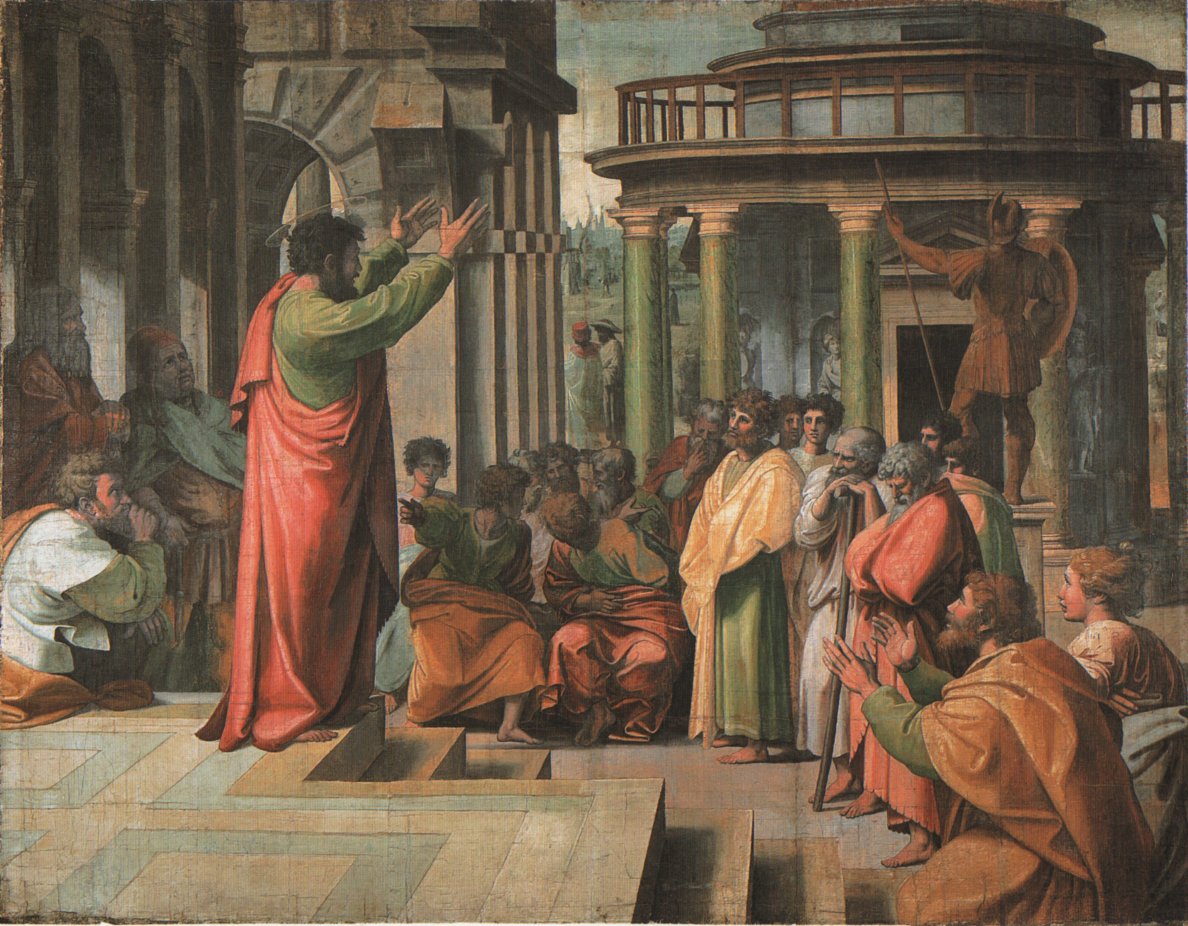 I found an article by Slavoj Zizek in the New Statesman, dated 5 April 2010 (I'm somewhat behind in my reading). Incidentally this is the annual God issue; according to the editor, sales always increase for the God issue. Make of that what you will!
I found an article by Slavoj Zizek in the New Statesman, dated 5 April 2010 (I'm somewhat behind in my reading). Incidentally this is the annual God issue; according to the editor, sales always increase for the God issue. Make of that what you will!
Zizek's article is called Soul of the Party. He aims to show how Paul (shown preaching in Athens from a cartoon by Raphael in the Sistine Chapel, and used to illustrate the article) used religion to rock the foundations of society. I have referred to some of the new takes on Radical Paul, particularly the works of John Dominic Crossan and Timothy Ashworth. Zizek is a communist and so in the eyes of some he cannot be a real Christian. I addressed this in a recent post. I intend to read his book The
Fragile Absolute: Or, Why is the Christian Legacy Worth Fighting For?
Here are a few quotes from the article. I hope Zizek won't mind me quoting him, he phrases things so well and it would be a pity to lose what he says.
Fyodor Dostoevsky was aware of how God gives us freedom and responsibility - he is not a benevolent master steering us to safety, but one who reminds us that we are wholly unto ourselves.
We are freed in Christ to become more truly ourselves. Too often the churches insist on moral rectitude, close to the law that Paul argues has been superseded. Our faith should free us to become perfect, it does not force us into a mould determined by the authorities (religious or secular). Of course, they are threatened by this and so the Christian is anything but steered to safety.
... a God who wholly "became man" ... and who not only "doesn't exist" but also himself knows this, accepting his erasure, entirely passing over into the love that binds members of the Holy Ghost ...
I suppose the atheists will object to this; obviously it is a logical contradiction. To me it is a re-statement of the incarnation - we cannot know God, except through Jesus. There is a sense in which God does not exist because God cannot be known to us except through Jesus. What can a God who does not exist do but send his Son?
For this reason Christianity is anti-wisdom: wisdom tells us that our efforts are in vain, that everything ends in chaos, while Christianity madly insists on the impossible. ... This is why Paul said, "I will destroy the wisdom of the wise" ... We should take the term "wisdom" literally here: it is wisdom (in the sense of "realistic" acceptance of the way things are) that Paul is challenging, not knowledge as such.
I think this touches the root problem with atheism. It is close to the truth, as it rejects false images of God. But it ends up saying that what is given is all there is. For many people this is unacceptable - it is the argument of the Lord of the Manor and the wealthy in all times and cultures. We cannot change things? Oh, yes? When Christians buy into the way things are, in effect we are atheists.
"For struggle is not against flesh and blood, but against leaders, against authorities, against the world rulers ... of this darkness, against the spiritual wickedness in the heavens" (Ephesians 6:12) Or translated into todays language: "Our struggle is not against concrete, corrupted individuals, but against those in power in general, against their authority, against the global order and the ideological mystification that sustains it".
I'm sure this is right. It is our faith in human institutions, including the church, which undermines faith. This is why violence is not appropriate for Christians, violence identifies the wrong enemies.

Comments